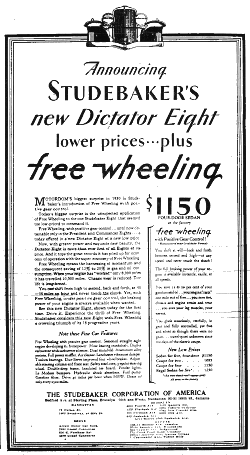
Note: I only have time for a short version today, and probably for a few weeks to come, due to heavy workload
Assorted historical stuff:
"Powerful pressure" is reportedly being brought on Pres. Hoover by "high govt. officials as well as influential private citizens" to legalize 3% beer; it's argued this would increase Federal revenues by $300M annually. Proponents are optimistic of success.
Administration officials have reportedly concluded stabilization of farm product prices has been proven a failure; will now concentrate efforts on disposal of farm products at best price obtainable, support bank credits for farm exports; oppose acreage cutting as unsound.
Russia reportedly became the world’s leading wheat exporter between July and Oct., taking over the usual US position.
Republican-controlled legislative committees in NY State have decided to report favorably Gov. Roosevelt’s unemployment relief program with only minor amendments.
Market commentary:
Market wrap: A technical rally in the morning petered out by noon following omission of dividend on Rock Island Rwy.; this brought heavy selling into the rails; bears pressed for weak spots and "uncovered several"; moderate rally just before close. Bond trading featured sharp declines in Central European issues; German bonds hit record lows. Railroad issues reversed rally following Rock Island dividend announcement. Dow average of 40 corp. bonds closed at new yearly low. US govts. also declined.
[Note: These guys sure run hot and cold Dept.] "It has been many months since sentiment in the financial district was as predominantly bearish as at present."
“Important selling” reported in the bond market in the past few days; some of the liquidation is said to be institutional, particularly in the rails.
A number of investment trusts [similar to mutual funds] have almost stopped trading, largely because the market broke so rapidly in 1929, when buying was at a high level, “that the managers of the trusts had little opportunity to take such profits as were available and were not disposed to sell out at losses. ... Some companies, intended initially to be trading concerns, have become investors.”
Homestake Mining's recent sharp rally reflects popularity of gold stocks, which are benefitting from “relative value of gold in relation to the present deflated commodity prices.”
S. Strawn, US Chamber of Commerce pres., says responsibility for recovery “rests upon business men rather than upon the govt.” Can’t expect immediate return to 1929 prosperity, but by “courage and determination,” can “begin now to work our way back.” Opposes unemployment dole, favors Hoover plan for community responsibility; calls for liberal contribution by all employers who can afford it to unemployment relief funds now being collected across the US.
Economic news and individual company reports:
British emergency govt. proposes sharp tax hikes and spending cuts to close estimates budget gap of $826M; taxes increased on incomes, gasoline, beer, etc.; cuts in public salaries and the dole. Proposed new British income tax rate on single male earning $1,800 is $353.50 vs. $3.38 in US; on married couple with two children earning $5,000 it's $958.50 vs. $12.38. Top tax rate is 54%.
Renewed weakness in marks is causing concern though transactions remain very limited; rumors are circulating in Berlin of “impending inflation,” and the Reichsbank may be forced to support marks again.
US Steel unfilled orders as of Aug. 31 were 3.169M tons vs. 3.405M July 31 and 3.580M a year ago; total lowest since mid-1927.
Money in circulation Sept. 9 was up $57M to $5.092B, total Reserve Bank credit outstanding down $5M to $1.216B. Member banks in NY City report brokers' loans down $41M to new low of $1.325B; loans on securities to non-brokers down $6M to $1.694B. Money in circulation is up sharply from $4.533B at end of Aug. 1930; increase attributed to “hoarding of currency by individuals as a result of unsettled banking conditions.” Analysis of “all other” (commercial) loan figures shows recent rise in reported total is due to unusually large bill holdings; when these are excluded, remaining commercial loans are down sharply, to $1.888B as of July 31 vs. $2.236B at start of the year.
Private long-term investments by US citizens in foreign countries estimated at $14.9B - $15.4B as of end of 1930 (includes both securities and direct investment). Leading foreign country for investment is Canada, with $3.9B.
Chicago wholesale gasoline market has weakened substantially after reopening of East Texas oil area, with reports of sales as low as 4 cents/gallon.
Oats prices are lowest since 1897 despite smallest crop since 1921; “sellers’ strike” appears to be setting in similar to that in the Southwest winter wheat belt.
Rock Island Rwy. omitted dividend after cutting it twice this year; officers' salaries cut 5% - 20%.
Theatre:
Just To Remind You - Playwright Owen Davis has “shaken an impatient fist in protest against organized ‘racketeering.’” Play is set in modest 52 St laundry of Jimmie Alden, which is bombed and ruined because Jimmie won’t pay $100 a month for protection. “The subject of the play, however, by broad implication, is NY; by broader implication, the country.” Jimmie is encouraged by policeman Dan Costigan to stand up and testify against the racketeers; as he lies dying at the final curtain, Dan tells him “in earnest that the police have done the best they could. Jimmie’s last angry words are to the effect that that ‘is not good enough.’” Play also assigns blame to a “lethargic citizenry.”
Joke:
“Are you positive that the prisoner is the man who stole your car?” “Well, I was until you cross-examined me. Now, I’m not even sure I had a car.”








